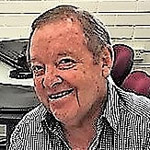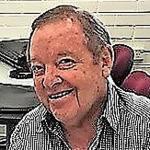Furious at being ignored by both political parties, Bill Ferguson resigned from the Labor Party and stood as an Independent for Dubbo in the 1949 Federal elections.
As an Independent member he made this commitment to his people:
‘To all you people of Aboriginal blood, I say…I am fighting for your freedom. Aboriginals still live under laws meant only to control criminals and lunatics: they are not allowed ordinary human rights…I can promise you nothing but the will to work.’
This would be his last public speech. Bill Ferguson collapsed as he left the platform, and died of hypertensive heart disease in Dubbo Base Hospital on January 4th, 1950.
His courageous faith, strong voice and the determined manner in which he spoke of the sufferings of his people has led people to compare him to the leader of the American Civil Rights Movement, Dr Martin Luther King which came into being some twenty years later.
Early life
Born on 24 July 1882 at Waddai, Darlington Point, New South Wales, second of seven children of William Ferguson, shearer and boundary rider from Scotland, and his wife Emily, née Ford, formerly an Aboriginal housemaid. While not denying his Scots heritage Bill chose to identify with the Aboriginals in their desperate need
Bill’s parents embraced the teachings of Jesus and taught them to their children. Working alongside his father in the shearing sheds he soon realised that his fellow indigenous teens were working the same job as him, for half the pay. This was at odds with his understanding that ‘all men are equal under God’ and should be treated accordingly.
Thus, began his career as an advocate for equality and recognition of the rights of his people. True son of a Wiradjuri mother he spoke her language, had a prized collection of weapons and talked of his people’s traditions to his children...
On Australia Day 1938 while the attention focused on the 150th anniversary of Governor Phillip’s landing, Bill Ferguson and William Cooper, in an attempt to ‘awaken’ the conscience of the nation, led Australia’s first national public civil rights protest, the Day of Mourning outside Australia House in Elizabeth St.
It was born from the despair they felt after years of lobbying to draw attention to the multiple injustices done to the indigenous people. According to the Dictionary of Sydney, ‘it was the first national civil rights gathering and represents the most clearly identifiable beginning of the contemporary Aboriginal political movement.’
Gathering information
Bill and his team spent years gathering a vast amount of information about what was happening to his people. He began the Aboriginal Progressive Association in Dubbo in 1937. This was one of the organisations that morphed into NAIDOC.
Five days later at Parliament House in Canberra, Prime Minister Joseph Lyons listened as William Cooper, Bill Ferguson and others presented their national aims for the recognition of the Aboriginal people’s just claims.
“We ask you to study the problem from the Aborigines point of view... we ask only for justice, decency and fair play. Surely your hearts and minds are not so calloused that you will refuse to consider your policy of degrading and humiliating and exterminating old Australia's Aborigines.” This was rejected.
With the assistance of Mark Davidson, Member for Cobar, Bill provoked a Select Committee of Inquiry which uncovered a tragic story of mismanagement and consistent abuse. Bill declared to a host of specially invited reporters ‘We must educate the minds of the white people, otherwise the thrusting back of my people which began 150 years ago will continue, until they are swept off the face of the earth!’
It was a landmark moment in civil rights history in Australia.
Highest Yes vote
Seventeen years after Bill’s death his dream was realised when on the 27th May 1967, the highest YES vote ever recorded in a Federal referendum (90.77%) saw section 51 (xxvi) of the Constitution changed to shift Aboriginal people from unrecognised existence to be included as citizens of their native country.
His loyal wife Margret, of Scots - Aboriginal descent and like her husband, a woman of strong faith, remained with their ten children, a number of whom became active in serving the Aboriginal people in the Western region.
 Written Dr Paul Roe with permission to Graham McDonald President Diduno for publishing in Christian Today
Written Dr Paul Roe with permission to Graham McDonald President Diduno for publishing in Christian Today

Graham McDonald is the President of Diduno